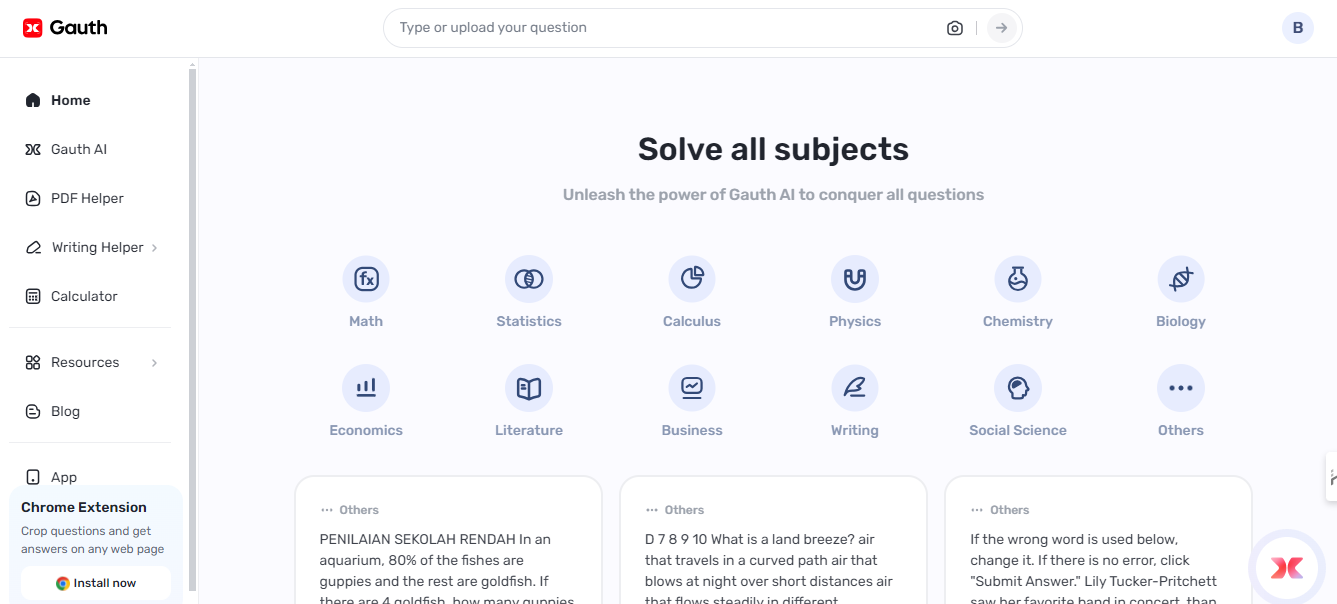Effective Strategies for Mastering Physics Writing Assignments
The intricacy of the topic and the accuracy demanded in communicating scientific ideas make physics writing projects sometimes tricky. Whether you are working on an essay on a physics subject, a lab report, or a research paper, approaching your work strategically can help you to handle it more easily. This book will look at efficient ways to handle physics writing projects and provide helpful advice on approaching, approaching, studying, and writing these projects with assurance. Furthermore, find out how Gauth AI can improve your writing process by offering customised tools and assistance to help you succeed in your physics writing assignments.
Understand the Assignment
Before starting your physics writing project, you should thoroughly grasp the needs and goals.
Examining the Needs
Exercise prompts should be carefully read and noted for essential components like the subject, style, and particular instructions. Focus on any standards about experimental techniques, theoretical justifications, or data display. Clarifying these specifics early on will help you guarantee that your job satisfies the requirements and tackles the project's main elements.
Investigating and Gathering Information
Many times, physics homework calls for a thorough investigation and data collection. Look at relevant textbooks, scholarly publications, and internet materials to get ideas about your subject. Make sure your studies provide correct and thorough data for lab reports. Methodically arrange your facts and information to make access simple throughout the writing process. A well-organized research phase will enable you to properly support your ideas and provide a firm basis for your project.
Developing a Clear Outline
The organization of your physics writing project depends critically on developing an outline. A good outline will guarantee that all required elements are covered and help you rationally organize your material. Your outline for a lab report may run Introduction, Methods, Results, Discussion, and Conclusion. You may arrange your outline for a research paper into an Introduction, Literature Review, Methodology, Results, Analysis, and Conclusion. A detailed outline can help you maintain your arguments cohesive and targeted and guide your writing.
Writing Clearly and precisely
Physics writing projects need accuracy and clarity to properly present complex ideas and statistics. Speak clearly and succinctly; steer clear of needless jargon or convoluted phrases. Show facts using suitable tables, graphs, and figures to improve grasp. To make sure your writing is understandable to your target readers, be sure you define any technical words or ideas. Moreover, use any particular formatting rules given in the task prompt to keep professionalism and uniformity.
Proofreading
Once your copy is finished, you should meticulously proofread it for correctness. To be sure your calculations, data display, and theoretical justifications are accurate, review them. Search your work for any mistakes or inconsistencies, then make the required fixes. Proofreading guarantees error-free work and raises the general quality of your work.
Getting Comments and Editing
Feedback from tutors, teachers, or peers may provide insightful analysis on improving your work. Think over their recommendations and adjust as needed. Reviewing your work in response to constructive criticism can allow you to strengthen your arguments and cover any flaws. Using tools like Gauth may also be very helpful as they give real-time grammar and style recommendations, enabling you to hone your work and raise general clarity.
Tips for Organization of Time and Drafting
Handling many physics homework depends on good time management.
Planning Your Work
Plan your work for every project phase - research, writing, editing, and finalizing - including deadlines. Set aside specific times for every chore and follow your calendar to prevent last-minute run-through.
Edit and Proofread
The writing process begins with drafting but is broader than that. Review and proofread your work after your draft is finished. Find accuracy, coherence, and clarity in your writing. Look for omissions, wrong computations, and grammatical mistakes. Getting comments from teachers or peers may also provide insightful analysis and improve your project's quality.
Dealing with physics writing projects requires strategic thinking and meticulous attention to detail. With features that suit your writing demands, Gauth may be a great tool. From delivering customized recommendations for organizing your arguments and presenting facts to supplying real-time grammar and style comments, Gauth helps simplify the writing process and guarantee that your projects are correct and well-ordered. Using Gauth's cutting-edge tools can help you improve the calibre of your physics writing and get higher marks on your projects.
By implementing these strategies and utilizing helpful resources like Gauth, you can effectively manage your physics writing assignments and produce high-quality work that meets academic standards.
Conclusion
In conclusion, managing physics writing assignments requires understanding the assignment requirements, conducting thorough research, analyzing data meticulously, and managing time effectively. By employing these strategies and utilizing tools like Gauth, you can enhance the quality and efficiency of your work, ultimately leading to better academic performance and more insightful assignments.

